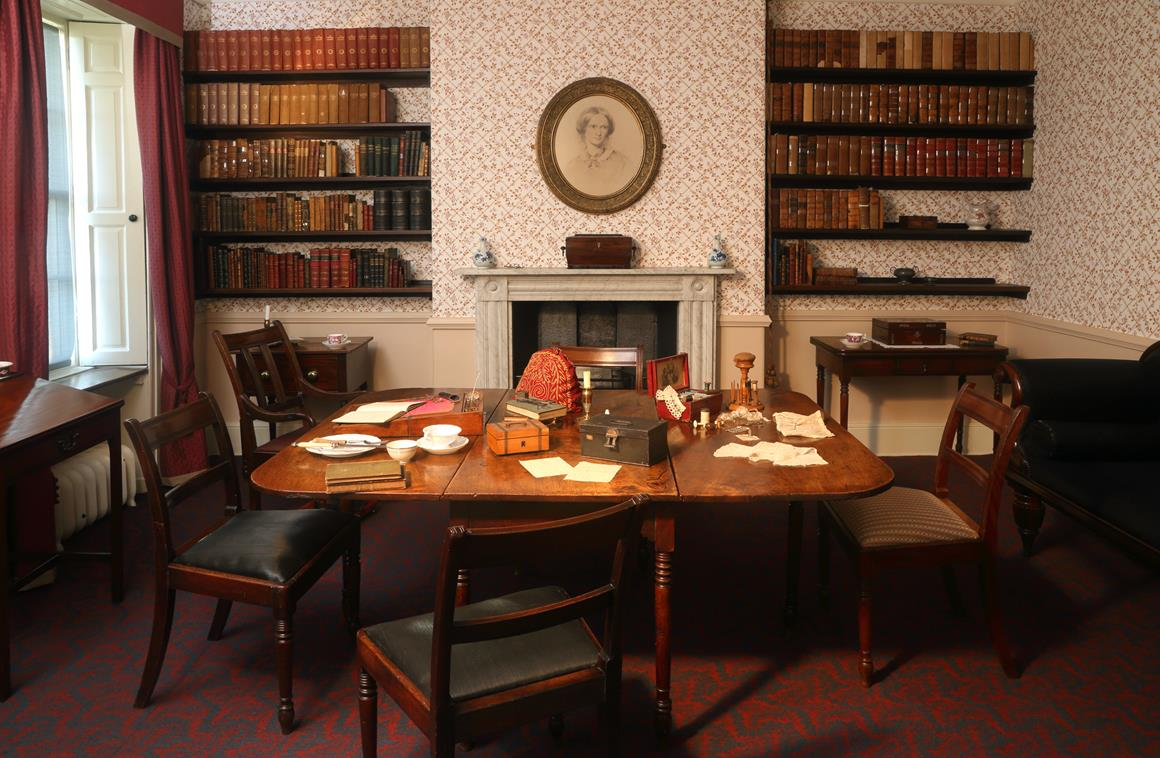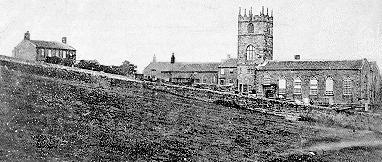The cause of Branwell’s dismissal has long been a subject of debate, while in recent years there has been increasing interest in Anne and appreciation of her work. The lack of information about their time at Thorp Green has therefore been most unfortunate; the following account of Branwell’s ‘honest and kindly friend’1 Dr John Crosby and his friends and neighbours, whose social life Branwell probably shared, may therefore be appreciated.
John Crosby - accomplice or dupe?
Moreover an unfortunate consequence of this interpretation is the reputation of the local surgeon, Dr John Crosby, who necessarily appears either as Mrs Robinson's accomplice or her dupe. In fact Juliet Barker herself points out in a footnote that the inscription on the tablet in Great Ouseburn church erected in John Crosby's memory by "a large circle of friends who deeply lament his sudden removal", which speaks of "his universal kindness, professional ability, benevolent disposition & active usefulness", "suggests that he too may have been duped by the lady".
Crosby held dinner parties attended by John's elder siblings, his aunt, his cousins, and the Boroughbridge and Aldborough doctors; John went to tea there and stayed the night, and in turn Crosby's nephew stayed overnight with the Stubbs family; John and Crosby played whist at uncle Henlock's house, together with other male friends and family and the gamekeeper; John went to Crosby's for tea, and they played Bagatelle and cards; he called at Crosby's and met a young visitor, Miss Johnson ("She played & sang I turned over the leaves she has a very sweet voice"). Crosby was fond of company and evidently well-disposed to the young.
Branwell – like Mark Smallwood and Tom Johnson after him – will have been a welcome addition to this circle. At the time of Branwell's arrival at Thorp Green in the neighbouring parish of Little Ouseburn, he was 25 years old and John Crosby was 46, twenty years younger than Branwell's father. In this small society, Crosby's friends spanned all ages – John Stubbs' aunt Ann, for example, was seven years older than Branwell.
Branwell was sociable and had (in Charlotte's words) a "strong turn for active life"; he was probably happy to join in Crosby's circle of friends. Moreover, there are several minor points about this social circle that might have seemed familiar or caught his interest.
"the benevolence of his disposition, the urbanity of his manners, the sympathy he manifested for the suffering poor and the skill he evinced in the exercise of his professional duties left a name which is cherished in many abodes, that in health had been cheered by his genial spirits and in sickness had been solaced by his kindly aid." Read more on the weblog of Alice Barrigan: North Yorkshire History
John Crosby - accomplice or dupe?
Moreover an unfortunate consequence of this interpretation is the reputation of the local surgeon, Dr John Crosby, who necessarily appears either as Mrs Robinson's accomplice or her dupe. In fact Juliet Barker herself points out in a footnote that the inscription on the tablet in Great Ouseburn church erected in John Crosby's memory by "a large circle of friends who deeply lament his sudden removal", which speaks of "his universal kindness, professional ability, benevolent disposition & active usefulness", "suggests that he too may have been duped by the lady".
Crosby held dinner parties attended by John's elder siblings, his aunt, his cousins, and the Boroughbridge and Aldborough doctors; John went to tea there and stayed the night, and in turn Crosby's nephew stayed overnight with the Stubbs family; John and Crosby played whist at uncle Henlock's house, together with other male friends and family and the gamekeeper; John went to Crosby's for tea, and they played Bagatelle and cards; he called at Crosby's and met a young visitor, Miss Johnson ("She played & sang I turned over the leaves she has a very sweet voice"). Crosby was fond of company and evidently well-disposed to the young.
Branwell – like Mark Smallwood and Tom Johnson after him – will have been a welcome addition to this circle. At the time of Branwell's arrival at Thorp Green in the neighbouring parish of Little Ouseburn, he was 25 years old and John Crosby was 46, twenty years younger than Branwell's father. In this small society, Crosby's friends spanned all ages – John Stubbs' aunt Ann, for example, was seven years older than Branwell.
Branwell was sociable and had (in Charlotte's words) a "strong turn for active life"; he was probably happy to join in Crosby's circle of friends. Moreover, there are several minor points about this social circle that might have seemed familiar or caught his interest.
We do not know what Crosby believed to be the situation between Branwell and Mrs Robinson – chaste mutual passion, unrequited longing, or unfortunate delusion. Nevertheless, according to Branwell's surviving correspondence, Dr Crosby continued to take a sympathetic interest in him after his dismissal, as a source of kindly advice and some money.
John Crosby's kindness to Branwell and others
Mrs Robinson may have been the source of the money, perhaps (ostensibly or in reality) as financial aid to employee(s) in need, but Dr Crosby may have assisted Branwell himself out of charity – especially if Branwell had also belonged to the local Oddfellows Lodge, in which case support for a fellow-member was a moral duty. His concern for Branwell must not only have derived from the emphasis he and his circle set on keeping up with friends and acquaintances, but also his undoubted sympathy for those in distress.
Mrs Robinson may have been the source of the money, perhaps (ostensibly or in reality) as financial aid to employee(s) in need, but Dr Crosby may have assisted Branwell himself out of charity – especially if Branwell had also belonged to the local Oddfellows Lodge, in which case support for a fellow-member was a moral duty. His concern for Branwell must not only have derived from the emphasis he and his circle set on keeping up with friends and acquaintances, but also his undoubted sympathy for those in distress.
John Crosby (1797-1859) and his family
Shocked by John Crosby's sudden death of a stroke at Euston railway station on 1 December 1859 at the age of 62, his friends not only erected a tablet in his memory in the church at Great Ouseburn, but also an obelisk in the graveyard. The inscription on the latter has almost disappeared, but fortunately the Yorkshire Archaeological Society in Leeds holds a transcription taken before the weather obliterated much of the lettering. It recorded that "the benevolence of his disposition, the urbanity of his manners, the sympathy he manifested for the suffering poor and the skill he evinced in the exercise of his professional duties left a name which is cherished in many abodes, that in health had been cheered by his genial spirits and in sickness had been solaced by his kindly aid." Read more on the weblog of Alice Barrigan: North Yorkshire History



Geen opmerkingen:
Een reactie posten